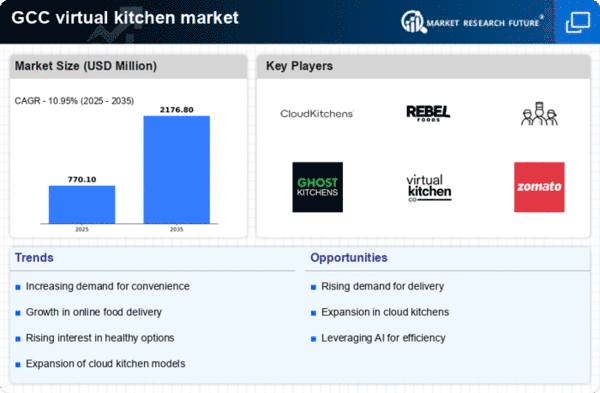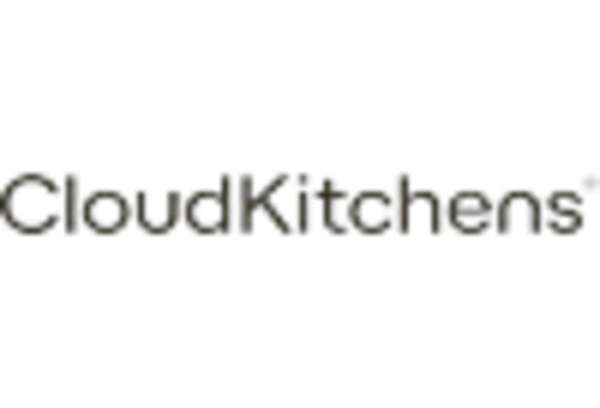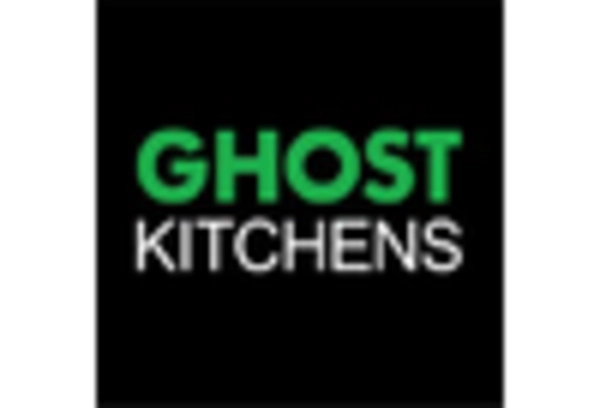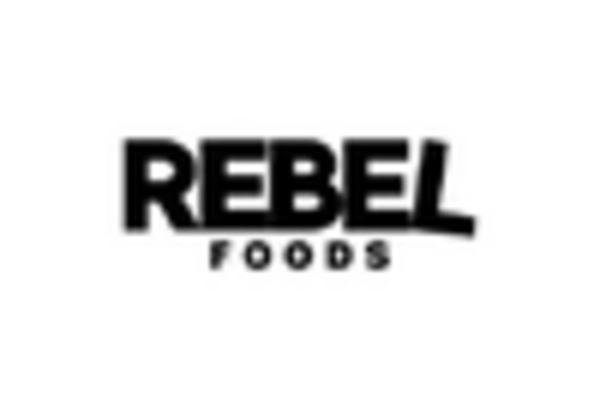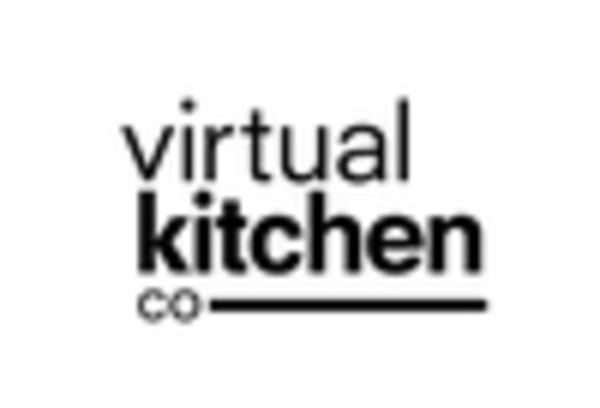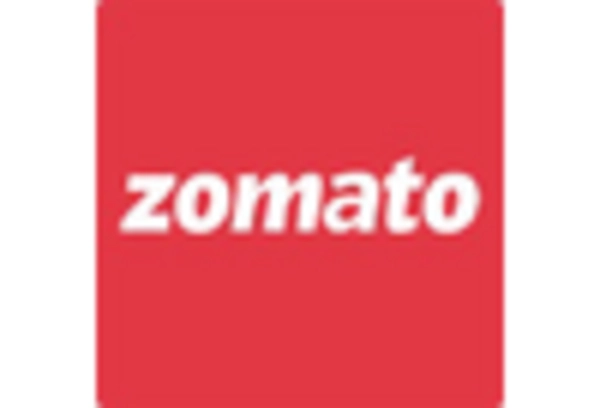Evolving Consumer Preferences
The virtual kitchen market is experiencing a notable shift in consumer preferences, particularly in the GCC region. As urbanization continues to rise, consumers are increasingly seeking convenience and variety in their dining options. This trend is reflected in the growing demand for delivery services, which has surged by approximately 30% in the last year alone. The virtual kitchen market is well-positioned to cater to these evolving tastes, offering diverse menus that appeal to a wide range of dietary preferences. Additionally, the rise of food delivery apps has facilitated access to these services, further driving growth in the market. As consumers prioritize convenience, the virtual kitchen market is likely to expand, adapting to the dynamic needs of the population.
Cost Efficiency for Entrepreneurs
The virtual kitchen market presents a cost-effective solution for aspiring restaurateurs in the GCC. By eliminating the need for traditional dining spaces, entrepreneurs can significantly reduce overhead costs associated with rent and utilities. This model allows for a more streamlined operation, enabling businesses to focus on food quality and delivery efficiency. Recent data indicates that startups in the virtual kitchen market can achieve profitability within 12 to 18 months, a compelling incentive for new entrants. Furthermore, the ability to test various concepts without substantial financial risk encourages innovation within the industry. As more entrepreneurs recognize these advantages, the virtual kitchen market is expected to witness an influx of new players, enhancing competition and variety.
Rising Demand for Diverse Cuisines
The GCC region is characterized by its multicultural population, which drives a rising demand for diverse cuisines within the virtual kitchen market. Consumers are increasingly seeking authentic culinary experiences from various cultures, leading to a surge in interest for international dishes. This trend is reflected in market data, which shows that orders for ethnic cuisines have increased by over 25% in the past year. Virtual kitchens are uniquely positioned to capitalize on this demand, as they can easily adapt their menus to include a wide array of options. As the appetite for diverse culinary experiences continues to grow, the virtual kitchen market is expected to expand, offering consumers a rich tapestry of flavors.
Technological Advancements in Operations
Technological advancements are playing a crucial role in shaping the virtual kitchen market. Innovations such as AI-driven inventory management and automated cooking processes are enhancing operational efficiency. In the GCC, the integration of technology has led to a reduction in food waste by approximately 20%, which is a significant improvement for sustainability efforts. Moreover, the use of data analytics allows businesses to better understand consumer preferences, enabling them to tailor their offerings accordingly. As technology continues to evolve, the virtual kitchen market is likely to benefit from increased efficiency and improved customer satisfaction, positioning it as a key player in the food service industry.
Focus on Sustainability and Eco-Friendly Practices
Sustainability is becoming a pivotal concern for consumers in the GCC, influencing their dining choices and driving growth in the virtual kitchen market. Many consumers are now prioritizing eco-friendly practices, such as sourcing local ingredients and minimizing packaging waste. Recent surveys indicate that approximately 40% of consumers are willing to pay a premium for sustainable food options. This shift is prompting virtual kitchens to adopt greener practices, which not only appeal to environmentally conscious consumers but also enhance brand loyalty. As sustainability becomes a key differentiator in the market, the virtual kitchen sector is likely to see increased investment in eco-friendly initiatives, further solidifying its position in the food service landscape.


